What Is the Legal Status of DAOs in the UK? Insights from the Law Commission’s Scoping Paper
Decentralized Autonomous Organizations (DAOs) are no longer fringe experiments. From crypto-native collectives to community-governed platforms, DAOs are reshaping how groups organize, fund, and govern themselves. But as these novel structures evolve, the legalframeworks surrounding them struggle to keep up.
In a recent Disputes Decoded episode—ArbTech’s collaboration with Tales of the Tribunal—host Chris Campbell spoke with tech-focused barrister Rachel Muldoon about how English law is grappling with DAOs. At the heart of the conversation: the UK Law Commission’s scoping paper on DAOs—a comprehensive review of how decentralized organizations might be treated under English law.
Here’s what you need to know.
What Is a DAO?
A DAO—short for Decentralized Autonomous Organization—is a digital-native governance structure that operates without a central authority. Unlike traditional companies with directors and shareholders, DAOs rely on blockchain-based smart contracts and community voting mechanisms. Members typically use governance tokens to vote on proposals, allocate funds, and shape the organization’s future direction.
As Muldoon explains, “DAOs are like digital committees. They can be powerful, transparent, and community-driven—but they’re also legally ambiguous.” DAOs often interact with users through whitepapers, smart legal contracts, and token-based systems, which creates both innovation and confusion. Particularly when consumer-facing materials differ from what is enforced on-chain, disputes become almost inevitable.
The UK Law Commission’s Scoping Paper: A Principles-Based Approach
“There’s been an exodus of crypto talent to the Middle East. If the UK doesn’t offer more legal clarity, it may lose its competitive edge as a legal forum for DAO-related disputes.”
Unlike jurisdictions such as Wyoming, which introduced a specific DAO LLC structure, the UK Law Commission takes a principles-based approach. Rather than creating new legal entities, the Commission suggests that DAOs can be interpreted using existing English legal categories—such as general partnerships or unincorporated associations.
Why does this matter?
Because the classification directly affects accountability, liability, and tax obligations. For example:
● If a DAO is treated as a general partnership and seeks profit, members may be personally liable for its debts.
● If it operates without profit, it may be treated as an unincorporated association, which still lacks a separate legal personality.
Muldoon emphasizes the importance of intent: “If a DAO starts as a non-profit and shifts toward revenue generation, that change in purpose could trigger unexpected legal and tax consequences.”
Legal Risks and Litigation: What’s Emerging?
While there are no reported UK cases directly involving DAOs (yet), the disputes are coming. According to Muldoon, she has already seen an uptick in advisory work and litigation preparation around:
● Disputes over DAO governance decisions
● Breach of contract
● Consumer misrepresentation
● Token-holder rights and obligations
● The use of AI in DAO decision-making
Smart contracts and decentralized voting structures may seem self-executing, but if they conflict with public documentation (like a whitepaper), the grounds for a contractual dispute are strong. Muldoon warns: “Off-chain communications, Telegram chats, and voting ledgers are all admissible as evidence. Transparency is a double-edged sword.”
Comparing Global Approaches: UK vs US and Beyond
The UK’s approach to DAOs stands in contrast to the state-level experimentation happening in the US:
● Wyoming and Tennessee offer DAO LLCs, allowing DAOs to gain limited liability through smart contract-based governance.
● The British Virgin Islands and Cayman Islands are seeing rapid adoption of offshore DAO wrappers.
● Meanwhile, Dubai and Singapore offer regulatory certainty and tax incentives, drawing talent and capital away from traditional legal hubs like London.
Muldoon notes a concerning trend: “There’s been an exodus of crypto talent to the Middle East. If the UK doesn’t offer more legal clarity, it may lose its competitive edge as a legal forum for DAO-related disputes.”
What’s Next: Regulation, Reform, and Responsibility
The Law Commission’s paper doesn’t propose a new “DAO Act.” Instead, it lays the foundation for future legal reform, identifying key risks and ambiguities in:
● Legal personality
● Enforceability of DAO decisions
● Regulatory compliance
● Taxation
● Use of AI and smart contracting in governance
The UK seems committed to a case-by-case, common law approach, which allows for flexibility but creates uncertainty for DAO founders and participants. Practitioners will need to monitor legislative developments, court decisions, and evolving industry standards closely.
Advice for Legal Professionals Entering the DAO Space
For lawyers and students intrigued by DAOs, Muldoon has two key pieces of advice:
1. Stay curious and interdisciplinary: Legal professionals must engage with technologists, developers, and data specialists to understand smart contracts, blockchain infrastructure, and AI integrations.
2. Follow policy developments: From the Law Commission’s proposals to Parliament’s crypto-asset bills, staying ahead of legislative shifts is essential for advising clients effectively.
A Legal Turning Point for DAOs?
Rachel Muldoon predicts that 2025 will be a pivotal year for DAO jurisprudence in the UK. As disputes increase and DAOs continue to integrate AI, smart contracts, and cross-border operations, the need for legal clarity will only grow. But she remains optimistic: “DAOs have enormous potential—not just for DeFi or gaming—but for communities, charities, and microeconomies. The challenge now is to match that innovation with thoughtful, practical legal frameworks.”
Explore more:
● Read the Law Commission’s DAO Scoping Paper
● Listen to the full Disputes Decoded podcast on DAOs here
● Connect with Rachel Muldoon on LinkedIn

